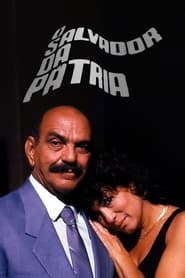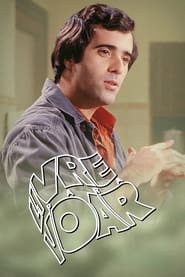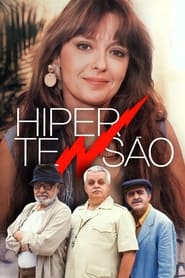Tv Globo TV Series - Page 4
-
Tropicaliente
1994
star 7Tropicaliente was a Brazilian soap opera produced and displayed at the time of 18 hours by Rede Globo, ran from May 16 to December 31, 1994, totaling 194 chapters. Written by Walter Negrao, in collaboration with Elizabeth Jhin, Angela Lamb, Mark Silver and directed by Vinicius Vianna and Blota Gonzaga, Marcelo Gomes and Roger Traverso. The general direction was Blota Gonzaga. -
Vale Tudo
1988
star 8.6Fátima Accioly is a young, callous woman who wants to be rich and successful at any price. After selling her family's house in the country, she heads to Rio and gets to know dress man César who is unscrupulous himself. Meanwhile, her mother Raquel stays behind without home and money, but finally tries to find her daughter in the big city. Both women come in contact with the rich Roitman family which changes their lives forever. -
Verão 90
2019
star 7A romantic comedy revolving around the life of three former child stars that wish to relive their fame after the end of their childhood musical group, Magic Bunch. Now in the fun-filled 90's, fate reunites the trio formed by Manu and the brothers João and Jerônimo. It also brings back the love between the aspiring young actress and João, as well as the rivalry between their disagreeing mothers. At the same time, fueled by his dubious character and jealousy towards the new couple, Jerônimo will do anything to bring back his days of glory, even if it means jeopardizing his own family. -
Felicidade
1991
star 7.2Helena falls in love with Álvaro, but they have to fight Débora's obsession with him to stay together. -
As Filhas da Mãe
2001
star 5.5The central story is focused on the daughters of Lulu de Luxemburgo - Tatiana , Alessandra and Ramona, who fight among themselves for Jardim do Éden resort, which their father, Fausto Cavalcante , left behind after cheating his two partners, Arthur Brandão and Manolo Gutierrez. With the disappearance of Fausto, the whole family, which was separated and spread across the world (between Rome, Los Angeles and Las Vegas), returns to Brazil. -
A Favorita
2008
star 8Donatela and Flora, two friends who became rivals. One of them committed a homicide and pretends to be innocent. There are two versions for the same story. Who, after all, is telling the truth? Donatela or Flora? -
Vamp
1991
star 7.7After making a Faustian bargain with a vampire for fame, a regretful young singer must find a sacred, lost artifact that might revert the curse. -
Meu Bem Querer
1998
star 6Meu Bem Querer is a Brazilian telenovela produced and aired by Rede Globo. Written by Ricardo Linhares, with the collaboration of Leonor Bassères, Nelson Nadotti, Maria Elisa Berredo and Glória Barretoentre, monitoring text by Aguinaldo Silva, direction of Luís Henrique Rios, João Camargo and Alexandre Avancini, direction general of Roberto Naar and nucleus of Marcos Paulo and transmitted by August 24, 1998 and January 20, 1999, totaling 179 episodes. -
Written in the Stars
2010
star 7.6Ricardo Aguillar, a powerful physician, loses the only and beloved son, the young Daniel, in an accident. After some time he discovers that the boy had frozen the semen before he died. From there he decides to go hunting for the "ideal woman", worthy of being inseminated and become the mother of his grandson. Only fate is about to play a part. When the insemination is finally done and the young woman chosen - the young Viviane - becomes pregnant, the man discovers himself hopelessly in love with her. From then on an unusual and surprising situation will give an electrifying direction to the story: the boy's spirit begins to prowl the family and, although they are in different plans, father and son will dispute the love of the same woman. It will be a clash between the impossible love, therefore idealized, and the realizable love, carnal, with all that it brings of joy and fulfillment, but also of hurts and uncertainties. -
Amor Eterno Amor
2012
star 5.8Amor Eterno Amor is a Brazilian telenovela produced by Rede Globo and exhibited in the schedule of 18 hours. Written by Elizabeth Jhin and directed by Roberta Richards, Fábio Strazzer, Luciana Oliveira Paulo Ghelli, Pedro Vasconcelos and Rogério Gomes, it was released on March 5, 2012, ending on September, 7 of the same year, replacing A Vida da Gente. -
O Bem-Amado
1973
star 9O Bem-Amado is a Brazilian telenovela that first aired on Rede Globo in 1973. It is based on a play by Dias Gomes called Odorico, o Bem-Amado ou Os Mistérios do Amor e da Morte, written in 1962. It was the first Brazilian color telenovela. It was shot in Rio de Janeiro. Broadcast by Rede Globo between January 22 and October 3, 1973.



















